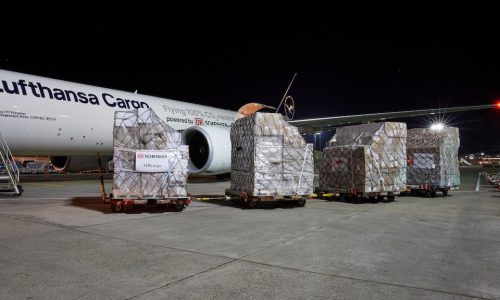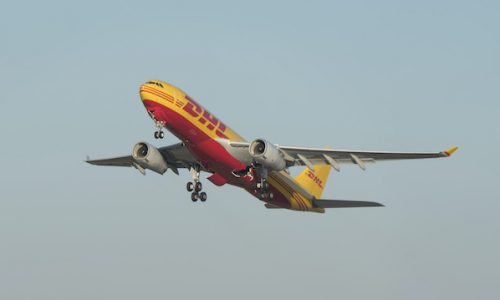Lufthansa has ordered three Boeing 777 production line freighters using current technology to meet near-term cargo demand, and a further seven next generation B777-8Fs for delivery between 2027 and 2030.
In addition, leases for two B777Fs current technology freighter aircraft, which run until 2024, will be extended for seven years each through 2031.
Lufthansa’s board said in a statement: “Demand for airfreight remains persistently high. Global supply chains continue to be disrupted. To further maximize very profitable market opportunities in this business segment, Lufthansa Group is purchasing three additional Boeing 777F freighters.
“One freighter, which has so far been flying for another airline, will be reassigned to Lufthansa Cargo in the upcoming weeks. Two new aircraft will follow later. Additionally, contracts for two leased 777Fs will be extended.”
The statement added: “As one of the first customers Lufthansa Group purchased seven state-of-the-art and efficient Boeing 777-8F freighter aircraft. They are based on the new technology of the Boeing 777X. The first aircraft will be delivered starting in 2027.”
The new Boeing 777-8F is considered the most powerful freighter aircraft. It has a range of 8,167 kilometers (4410 nautical miles) and a maximum payload of 118 metric tons. Compared to the 777F version, it has 17 percent more cargo volume.
Thanks to the two efficient GE9x engines from General Electric Aviation, fuel consumption is low, which in turn saves emissions.
Currently, Lufthansa Cargo’s freighter fleet consists of a total of 15 Boeing 777Fs, four of which are operated by AeroLogic. In addition, there is the capacity of two A321 freighters and the belly capacity of passenger aircraft operated by Lufthansa, Austrian Airlines, Brussels Airlines and Eurowings Discover.
Dorothea von Boxberg, Chairperson of the Executive Board and CEO of Lufthansa Cargo, said: “We are very pleased that we have been able to set an important course for our future and the growth of Lufthansa Cargo with the decision to order ten additional widebody freighters.
“We can offer our customers significantly more capacity in the short and long term, and also ensure that we operate the most modern and efficient freighters in their class.
“The investments in the next freighter generation, the Boeing 777-8F, will significantly reduce CO2 emissions. We are thus taking another important step on our way to CO2-neutral airfreight. These major investments in Lufthansa Cargo are a sign of confidence in the future development of the airfreight market and in the role that Lufthansa Cargo will continue to play in it.”
The announcement includes order for seven Boeing 787-9s passenger aircraft which will compensate for delayed B777-9 deliveries. The delivery schedule of B787-9s already ordered will be accelerated.
Carsten Spohr, CEO of Deutsche Lufthansa, said: “We continue investing in more fuel-efficient, quieter and more economical aircraft that emit significantly less CO2 that enable us to drive our fleet modernization.
“By purchasing these state-of-the-art aircraft, we again underline Lufthansa Group’s ability to invest in and shape the future. We are again taking the initiative and expanding our leadership role as well as taking responsibility for the environment – with premium products for our customers and a sustainable fleet.”
The Boeing 787-9 passenger aircraft consume about 25 percent less kerosene than their predecessors, the 777-8F freighters nearly 15 percent less kerosene. Both aircraft will have an equally positive effect on the carbon footprint.

